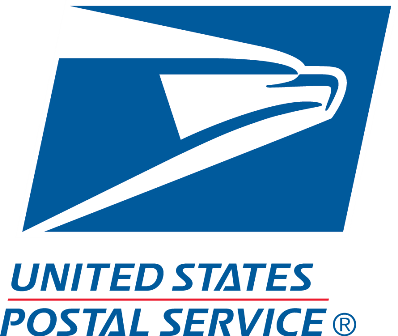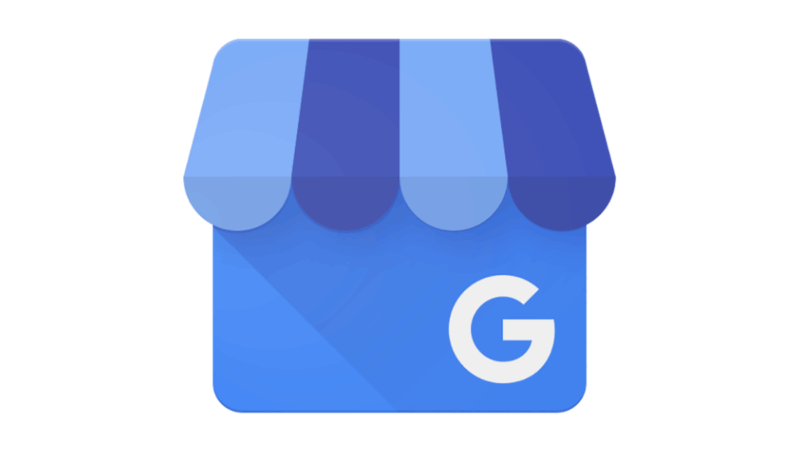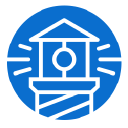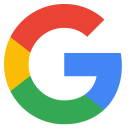
On Starting Charleston's Premier Walking Tour Company
Greetings from Charleston! I’m John LaVerne, founder of Bulldog Tours and my company offers a variety of history, food, pub, and ghost tours throughout our historical district. While the vast majority of our customers are leisure travelers from all over the world, we also provide custom tours for corporate and educational groups.
In 2001 I started this company with 3 goals in mind: I wanted to have fun, I needed a tax write off, and because I was a bachelor at the time and I wanted to meet some single ladies. What started as a hobby has grown to be an incredible company, a model of sustainable tourism, and it has fulfilled all my initial goals (I met my wife on one of the tours). Full transparency - I had no business starting my own company. My story will explain why.

What's your backstory and how did you get into entrepreneurship?
During my senior year in college (The Citadel) I registered to do an internship because it was supposedly an easy way to escape the regimented campus of a military school. I chose what I assumed would be the easiest, the Charleston Tourism Department.
If you aren’t willing to devote your life to your business, it might not make sense for you to make that leap. You don’t have to know everything, you just need to hire experts that do.
After a few weeks of doing clerical work at the Tourism Department, the Director suggested I go take a carriage tour to get some insight into what the industry was about. While I had no desire to play tourist, I welcomed the distraction and a few minutes later found myself on a carriage, dressed in my cadet uniform, amongst a bunch of people I didn’t know, playing tourist in my hometown. Within minutes of the tour starts, I had a life-changing epiphany – being a tour guide was something I wanted to do for the rest of my life. I was mesmerized by the entire performance. The tour guide was part educator, part entertainer, and was showcasing the most amazing city in the world, Charleston.
My parents had just spent a fortune sending me to college yet my first job out of school had me standing behind two mules/horses, talking to tourists all day. While friends and family thought I was an idiot for not doing something they deemed worthy of a college graduate, giving tours was the first job I had ever truly loved. Not sure they realized that graduating with a 2.4 GPA in Political Science that I would have had a lot of opportunities anyways.
After being a tour guide for a couple of years I felt the desire to go get a “real job”. I ended up becoming a sales rep for an industrial chemical company. Despite knowing nothing about chemicals, I discovered sales was a fascinating process that was a mixture of listening, learning, psychology, and determination. While I didn’t love what I was doing, I was content that it was a means to a decent life. Content yet not truly fulfilled.
Take us through your entrepreneurial journey. How did you go from day 1 to today?
One evening after having dinner and a few drinks with a friend, I was riding my bike home and noticed a group of about 15 people on a ghost tour, in the middle of summer. I found this very odd because just a few years prior when I was a tour guide, ghost tours were only mildly popular even when they were just offered around Halloween. A few blocks later on my bike ride home, I passed one of my favorite historical buildings that I had loved my entire life, The Old Exchange and Provost Dungeon. I had the light bulb moment and thought, “Wouldn’t it be cool to take people on a ghost tour through that building at night, into the Pre-Revolutionary Dungeon at the bottom of it?!”. This question nagged at me for several weeks to the point where I needed to at least cure my curiosity. After a long day of being a chemical salesman, I walked into the Old Exchange, asked to speak to the Director whom I didn’t know, and told her my insane idea.
I told her I wanted to start a walking tour company that would feature their building at night when nobody was using it. And if she would give me exclusive access, I would give them a third of the proceeds to help with their preservation efforts. For some unknown reason, she accepted the offer and this handshake deal would forever change my life. That was the birth of my first tour, the Charleston Ghost & Dungeon Tour. Armed with two years’ experience as a tour guide and zero experience running a company, I started my own company when I was 31 years old with nothing to lose. The startup costs were thankfully minimal (less than $5k) because this was just going to be a side-gig, something that was fun and something I would be proud of.

What I quickly discovered, within a couple of weeks after starting this, as I had experience or education on anything relating to running my own company. I spent 50-60 hours a week doing my daytime “real job” and another 20-30 working on this crazy tour company hobby I had created. It was a whirlwind of late nights learning about accounting, how to build a website, marketing, business law, and a myriad of other topics I had never considered. What I discovered was that despite working non-stop creating something I was proud of, was that I had never been happier in my life. After three months of juggling both jobs, I decided to jump in with both feet. When I told my friends and family that I was quitting my so-called career, the one that had benefits and a six-figure salary, and was going to focus on the tour company, the collective response was that I was an idiot.
A year later I read in the paper about a new college that had purchased one of my other favorite buildings, a 200-year-old jail that had a fascinating history. I approached the college, offered them a similar partnership, I would get exclusive access to the building at night when nobody was there, and they would get a portion of the proceeds to be used for preserving their historical building. They agreed and the moment I walked out of their door with a signed contract, I thought I had made the biggest mistake of my life. While the jail is located in the historical district, it’s off the beaten path and located across the street from a housing project. It was an unknown building that tourists had never heard yet and this would probably be the downfall of my new company. With a lot of work and a laser-focused drive to create an incredible tour, the Haunted Jail Tour became successful within a couple of years.

A year later I made another partnership to have exclusive access to the oldest graveyard in town and created the Charleston Ghost & Graveyard Tour. Soon after that, I purchased the best daytime history tour company in town because I had already controlled the market share of the ghost tour industry and I wanted our brand to be more than just ghost tours. Not long after figuring out the daytime tour industry, I had the privilege of giving a ghost tour to celebrity chef, Giada De Laurentis of The Food Network. During the tour, she was asking me lots of ghost questions and I was asking her lots of food questions. She casually suggested I do food tours instead of ghost tours because I seemed to love food so much. I had never heard of food or culinary tours before but she said they were apparently a new concept and there were only a few companies offering such tours. After doing a minimal amount of research, I decided we would start doing food tours. I pitched the concept to some friends in the tourism industry and they collectively said I was an idiot, that nobody would pay me to talk about food. Within 6 months we were featured in Bon Appetit magazine, New York Times, Southern Living, and a host of other publications.
By 2014 we were offering 7-8 tours on a daily basis and our storefront of ten years was being sold. While scouting out new retail space I came across an old house not far from our office and called the realtor to schedule looking at it. Within 5 minutes of looking at this run-down house, the listing agent told me I didn’t want that house because it was old, expensive to maintain, and it needed a fair amount of work. I thankfully brought a friend of mine with me who is a contractor and asked him what it would cost to make the house usable. Within 10 minutes of being in the house, I told her I wanted to buy it. She rolled her eyes and filled out the paperwork. 5 months later, here’s the result, the headquarters of Bulldog Tours.


How are you doing today and what does the future look like?
I have to be honest, I still don’t know a lot about business, not in the technical/academic sense. My focus has always been on offering the best tours possible and knowing that if I can make that happen, everything else will fall in line. While I can follow a balance sheet or a profit loss statement, I certainly can’t interpret them with any sense of accounting proficiency. For the first ten years of running Bulldog Tours, I relied on my instinct, my focus on providing a quality service, and making sure we continued our sustainable tourism business model by helping preserve the historical landmarks of my hometown. But as it started to scale up, I soon realized I would need help to continue growing my company.
I hired a business coach three years ago and during our first meeting, he asked me questions I couldn’t answer like what was our profit margin, what was our customer acquisition costs, what were our accounts receivables, and what were my KPI’s? I had a basic understanding of what all those things were but I certainly couldn’t rattle off the answers. I soon realized this guy was going to make a lot of money off of me and we dug into the books and analyzed the company from start to finish.
The learning curve was steep but I knew I had to pay attention to these things if I wanted to grow or if I ever truly wanted peace of mind in knowing my company was where it needed to be. I’ll never know all the metrics an MBA program would tell you I should know. I have a business coach, an operations manager, a marketing consultant, a bookkeeper, and a leadership coach to help me figure all that stuff out.
Here are some metrics I do know:
- We’ve given tours to over a million people from 43 different countries.
- I have 6 full-time managers and supervisors, about 40-50 tour guides, a customer service staff of about 12-15.
- We have over 10k reviews on Google, TripAdvisor, Facebook with a collective grade of 4.7 out of 5 stars
- Our website had almost 2M page views and our conversion rate (probably my favorite metric) was over 6%.
- We’ve raised over $4M to preserve local historical landmarks and have won several awards for our preservation/charity efforts.
When I first started the company in 2001, my goal was to spend 5 years building up operations in Charleston and then go build another location in Savannah, another historical city about 100 miles south of Charleston. And then add new cities every few years. Those dreams diminished as the company kept growing in Charleston and after having kids I realized my heart and my business belong in Charleston and I would never expand into another city. I’ll continue to add tours and experiences in Charleston until there’s no more room for growth and if that happens before I’m in the grave, I’ll branch out.
My short term goal for Bulldog is to work on the internal growth of the company during the pandemic. We have embarked on taking the company’s leadership through the Entrepreneurial Operating System (EOS). This program is based on the book Traction* *which I’m pretty sure was written just for me, somebody that had no clue how to run a business. By the time Covid-19 is in our rearview mirror and the travel industry reaches an all-time growth spurt, Bulldog Tours will be positioned to do even more.
Long term goal is to do this until I’m either irrelevant or I’m six feet below the ground at Magnolia Cemetery, home of our newest tour (Victorian-era burial ground and the most beautiful place on earth). At some point, I’ll probably not go into the office five days a week but that’s not in the near future. I’m 18+ years into this ride and short of the chaos of a global pandemic, it’s been the ride of my life.
Through starting the business, have you learned anything particularly helpful or advantageous?
What have I learned in 18 years of owning a business? It feels like I got the equivalent of an MBA, law degree, HR certificate, a CPA license, and a lot of grey hairs along the way. I’ve made more mistakes than I can count but those mistakes have been more valuable than any business school could have ever taught me. I’ve made a lot of decisions the experts said were foolish yet they felt like the right thing to do; some didn’t work out but enough did which has been the catalyst for the company’s growth.
One of the best decisions I’ve ever made was our tour partnerships with the historical landmarks. Those partnerships are what elevates our tours above the competition. Hiring the best people you can and treating them well is always a great decision. We have collectively built a culture of the most dedicated people I can possibly imagine. Hiring people smarter than me is not only easy but it’s been, my savior. I don’t have to be an expert at bookkeeping or SEO or marketing but hiring people who are, that’s the key. Staying true to our sustainable tourism mission of helping preserve Charleston has been a great decision. Since opening in 2001, we’ve raised over $4M to help preserve some of the most historical landmarks in Charleston. This mission will be the legacy of Bulldog Tours.
While there’s a lot of things an entrepreneur can control, including myself, there will always be things we can’t. Some work in your favor but some won’t. A year without any hurricane scares is a huge win. A global pandemic, huge loss. What I’ve realized though is that entrepreneurs are used to taking risks, used to rolling with the punches, and used to change how we do things until we get it right. People that never owned their own business would be terrified of maxing out a personal credit card to cover payroll during the slow season. We are comfortable swinging for the fences and either striking out or hitting a home run. Most people just want to get on base.
Without having a business degree or any experience running a business, it probably didn’t make sense for me to start my own company. But in hindsight, not knowing the rules allowed me to do things that didn’t make sense on paper, but my gut instinct told me they could work. From day one I’ve considered Bulldog Tours the best tour company in the world so every day I wake up, the goal is to make sure that’s a reality. But the great thing is, loving what I do makes it feel like a hobby I get paid to do. There will always be some long days filled with lots of obstacles but I have yet to have a day so bad that I considered giving it up.
What platform/tools do you use for your business?
Like most entrepreneurs, I possess a superpower, ADHD. This gift allows me to jump from one role to another and be excited about it. On any given day I’m involved with accounting, marketing, sales, business development, IT, maintenance, HR, and brand manager, and having a variety of roles is perfect for somebody that gets bored easily.
In order to keep my superpower in check, I often take a small dose of Adderall to keep me at least partially focused. Constant use of my Outlook calendar keeps me on track. Super important things get an audible alarm on my phone. Sticky notes are a must-have to keep up with to-do lists and the myriad of ideas to consider. Getting 60-80 emails a day can easily hijack my brain and my schedule so I love using SaneBox to keep my emails in order and prioritized. Even with this great tool, it’s a daily struggle to not get sidetracked. Google Analytics is one of my favorite tools as it keeps track of my favorite metric, our website’s conversion rate, as well as telling me the exact ROI on our digital advertising efforts. To this day I’m blown away that it can tell me to the penny how much revenue an ad generated. Dropbox is my favorite way to share large files and I’m starting to like Google Docs more and more. The more we collaborate on projects and group training, the more important having a shared platform has become.
I rejected moving from Quickbooks desktop to their online version but Quickbooks Online has been a great way to automate bank and credit card transactions. Any software that can save us time or eliminate redundant tasks is a godsend. Intuit Payroll jives well with Quickbooks Online which is a huge plus. One of the most important tools/partners/platforms is our online ticketing partner, Fareharbor. They are the Ticketmaster of the tour industry and they make sure our online ticket sales run flawlessly. To fully describe the intricacies or the importance of a tour company’s booking platform would take an eternity. Unfortunately, it took me 18 years to realize we should be using a CRM so, during the quarantine, we started working with Hubspot for our salespeople (one inside salesperson and one outside salesperson). Hubspot, like probably all CRM’s, has an enormous functionality so while the learning curve is steep, we’re excited to have it in our arsenal.
Like many other industries, online reviews are a crucial part of our reputation and ultimately sales. We love using Podium to not only manage our reviews but to help us acquire reviews from our customers. Facebook and Instagram are the focus of our social media efforts but we also have a YouTube channel and a Twitter feed. While shutting down for a little over two months during this pandemic, we did daily virtual tours using Facebook Live and the results were phenomenal, over 350k views in just over two months. I’m madly in love with CrowdRiff as a tool to harness the power of User Generated Content. Charleston is incredibly photogenic so our guests capture amazing photos on our tours and this platform helps us share those photos with the world. Sprout Social does a great job keeping our social media calendar maximized. This is one of our platforms I want to learn more about as the reporting tools are very insightful and probably something I should pay more attention to.
Some of the best tools we use are human-based. Word of mouth recommendations from our customers and local hotels will always be a significant part of our operation.
What have been the most influential books, podcasts, or other resources?
Probably the most influential resource to Bulldog Tours and their contribution to our success would be immeasurable, is the Charleston CVB (Convention & Visitors Bureau). Every travel destination has a CVB but ours is second to none. The majority of the credit for all of the accolades Charleston has received through the years as a top global destination goes to the Charleston CVB. The Arrival Conference is my favorite industry trade show. Being in the same room with hundreds of tour operators from all over the world has been such an incredible resource for learning and networking. Hearing people discuss the same issues I deal with on a daily basis is inspirational. The Global Food Tour Association is a great collective of food/culinary tour operators and they have been a great asset to helping all aspects of our food tours.
If there’s anyone resource I could recommend to any established business owner, it would be Entrepreneurs Organization (EO). Thankfully Bulldog got a call from an EO Chapter 6 years ago, asking if we could provide tours for their group retreat. I spent three long days with a group of entrepreneurs that were discussing the good, bad, and ugly of being a business owner and they were doing this on a level I had never experienced before. When the retreat was over I called EO’s Global Headquarters and told them if they ever wanted to start a chapter in Charleston, I would be their cheerleader. It took about four years to materialize but I became one of the founding members of the EO Charleston and I am continuously blown away with the organization. EO has 196 chapters globally in 62 countries, with nearly 15k members. No other organization has helped more entrepreneurs than EO. Membership requires gross sales of at least $1M and you have to be either the founder of the company or the majority shareholder. If there’s an EO Chapter where you live and you meet the membership requirements, joining will be the best move of your career.
Advice for other entrepreneurs who want to get started or are just starting out?
I’m not a huge fan of giving advice but I can say based on my experience, if you’re starting your own business, be ready to work your ass off. If you aren’t willing to devote your life to your business, it might not make sense for you to make that leap. You don’t have to know everything, you just need to hire experts that do. The reason most businesses fail within five years is that it’s HARD and it’s not for the faint of heart.
The biggest mistake I see people making, in my opinion, is they create a product or service that’s no different than their competitors. Your service/product needs to be better, different or priced a lot less than your competition. And while people are typically always price-conscious, what happens when somebody undercuts your pricing? It’ll be a race to bankruptcy if you just keep lowering your price to stay competitive.
Where can we go to learn more?


Download the report and join our email newsletter packed with business ideas and money-making opportunities, backed by real-life case studies.

Download the report and join our email newsletter packed with business ideas and money-making opportunities, backed by real-life case studies.

Download the report and join our email newsletter packed with business ideas and money-making opportunities, backed by real-life case studies.

Download the report and join our email newsletter packed with business ideas and money-making opportunities, backed by real-life case studies.

Download the report and join our email newsletter packed with business ideas and money-making opportunities, backed by real-life case studies.

Download the report and join our email newsletter packed with business ideas and money-making opportunities, backed by real-life case studies.

Download the report and join our email newsletter packed with business ideas and money-making opportunities, backed by real-life case studies.

Download the report and join our email newsletter packed with business ideas and money-making opportunities, backed by real-life case studies.

































